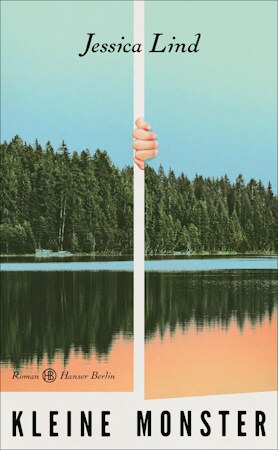Fiction
Jessica Lind
Kleine Monster
[Little Monsters]
The Family as Relentless Competition
Pia, Jakob and their young son Luca appear to be a happy family. That is until Luca’s elementary school teacher requests they come to school for a talk. Something seems to have occurred, while Luca was alone in the classroom with a schoolmate. According to the teacher, girls don’t make such things up. The incident, which Jessica Lind deliberately leaves vague, has consequences. The parents’ WhatsApp group removes Jakob and Pia without saying a word. Clearly, the parents are talking about their son and they have no way to defend him. Above all, Pia, the first-person narrator of “Little Monsters”, is filled with doubts about her son. Is Luca hiding something from them? Are children as innocent as their parents always believe? Or are they really, as the novel’s title suggests, manipulative “Little Monsters”?
Austrian author Jessica Lind, born 1988, skillfully creates an ambivalent atmosphere in her second novel. The ambiguous and artfully constructed text presents a supposedly blind motherly love that is mixed with a guilt complex stemming from Pia‘s early childhood. One might assume that Jessica Lind once again is attempting to impose the zeitgeist theme of “Regretting Motherhood” on her novel, but we soon realize Lind is focusing on a different issue. The second plot line of the novel tells the story of Pia’s upbringing and relationship to her parents. Pia is the eldest of three sisters. Romi, the middle sister, had been adopted by the family. Since early childhood, Romi had a mind of her own. Linda, the youngest sister, who bears a remarkable semblance to Pia’s son Luca, drowned in a lake close to the parents‘ home when she was four years old. At the time, Pia was ill in bed, while Romi had tried to save her sister‘s life.
This tragic accident is the secret, traumatic core of the novel. It determines Pia’s view of how to raise a child, partnership, and dealing with a family structure that nearly imploded after the death of her sister. The parents became abusive, punishing the children relentlessly and forbidding them all sorts of things, especially Romi, who finally ends up running away. Jessica Lind, who studied screenwriting at the Vienna Film Academy, has a flair for constructing scenes and dialogue. Whether we are witness to Pia communicating with her mother, or exploring her relationship with Jakob, or dealing with her son Luca – Lind stages the institution of the family in constant competition: each vying for affection, attention, time and status. During this conflict, Pia begins to re-evaluate her own childhood experiences. Lind’s story can also be read as a coming-of-age novel; as a slow process of distancing oneself that leads to both liberation and realization.
It is these experiential paths that elevate “Little Monsters” from being a solely personal and private story to a universal one. The novel also raises the question of how and what extent generations judge each other fairly and justly. The events that take place are exclusively seen through the filter of Pia’s perspective— a world view wherein dark, destructive tendencies also have their place. In the scanty space of around 250 pages, “Little Monsters” offers a seemingly distant and cool text, but it also includes trapdoors that open continually into the realm of the uncanny.
Translated by Zaia Alexander
By Christoph Schröder
Christoph Schröder, born in 1973, lives and works as a freelance literary critic in Frankfurt/Main. His articles are featured on Deutschlandfunk Radio, SWR Radio, Süddeutsche Zeitung, and elsewhere.


